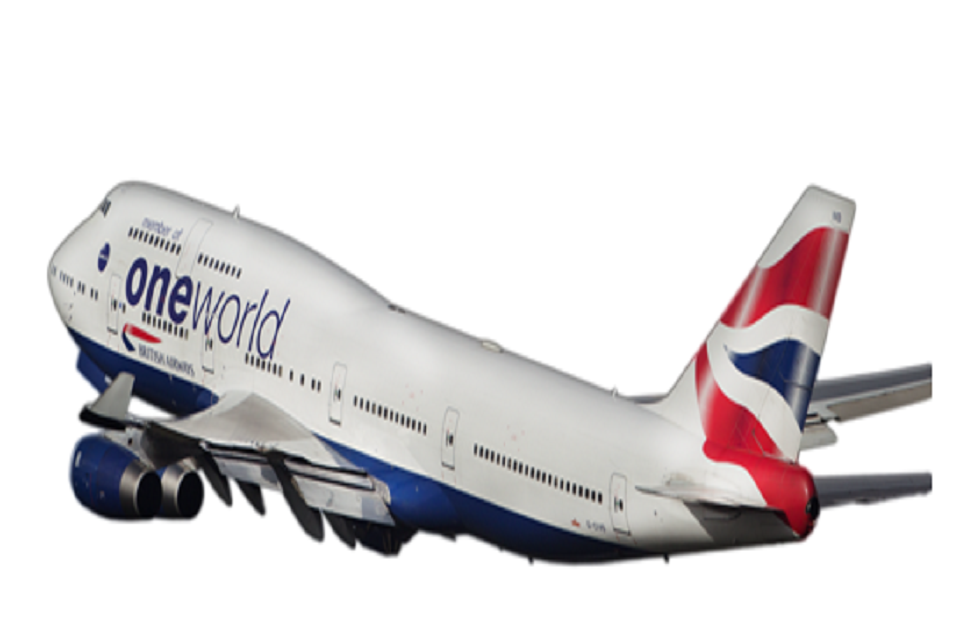British Airways COVID 19 Restructuring: Fleet Reduction, Route Reductions, Wage Reductions, Cost-Cutting Measures, and Focus on Digital Transformation

Introduction
The British airways covid 19 restructuring process severely impacted the airline industry worldwide. The restructuring involved a range of measures aimed at cutting costs, improving efficiency, and ensuring the long-term viability of the airline.
British airways covid 19 restructuring: key steps
Job cuts
One of the key steps taken during the British airways covid 19 restructuring process was the acceleration of its digital transformation efforts. The airline recognized that investing in digital technology would not only help improve efficiency but also enhance the customer experience, which would be critical in a highly competitive market.
British Airways invested in several digital initiatives, such as upgrading its mobile app and introducing new self-service technologies. The airline’s mobile app was updated to include new features such as mobile boarding passes, real-time flight updates, and the ability to track baggage. These features not only made the travel experience more convenient for customers but also helped reduce contact between staff and passengers, which was important during the pandemic.
Another digital initiative introduced by British Airways was the introduction of self-service kiosks at airports, which enabled customers to check-in, print their boarding passes, and tag their own bags. This reduced the need for staff at check-in desks, which helped reduce costs and improve efficiency.
In addition to these initiatives, British Airways also invested in data analytics and artificial intelligence (AI) to better understand its customers and personalize their experience. The airline used AI to optimize its pricing strategy, which helped increase revenue while ensuring its fares remained competitive. It also used data analytics to identify customer preferences and tailor its marketing efforts accordingly.
The airline’s focus on digital transformation has been critical in helping it adapt to the challenges posed by the COVID-19 pandemic. By investing in technology, British Airways has been able to improve efficiency, reduce costs, and enhance the customer experience, all of which are essential in a highly competitive market. The airline’s digital initiatives have not only helped it survive the pandemic but have also positioned it well for the future.
Fleet reduction
As part of British airways covid 19 restructuring, the company announced plans to retire its entire fleet of Boeing 747s. This decision was made in response to the significant decline in demand for air travel, which had a severe impact on the airline’s finances. By retiring the Boeing 747s, British Airways aimed to reduce costs and streamline its operations to better match reduced demand.
The Boeing 747, also known as the “Queen of the Skies,” has been a flagship aircraft for British Airways for decades. However, with the pandemic causing a significant reduction in demand for air travel, the airline was forced to reassess its fleet strategy. The Boeing 747 is a large, four-engine aircraft that is expensive to operate and maintain, and requires a significant amount of fuel. As a result, retiring the fleet was seen as a cost-saving measure.
Retiring the Boeing 747s was not a decision that British Airways took lightly. The airline had previously planned to retire the aircraft by 2024, but the impact of the pandemic accelerated the timeline. The airline’s decision was also influenced by the fact that newer, more fuel-efficient aircraft are now available that are better suited to the current market conditions.
Retiring the Boeing 747s has several benefits for British Airways. First, it helps the airline reduce costs, as the older aircraft were expensive to operate and maintain. Second, retiring the fleet enables the airline to simplify its operations and streamline its fleet, which will make it more efficient and easier to manage. Finally, retiring the aircraft is also good for the environment, as newer aircraft are more fuel-efficient and emit fewer emissions.
British Airways’ decision to retire its entire fleet of Boeing 747s as part of its COVID-19 restructuring efforts was a significant step towards reducing costs and streamlining its operations. While retiring the “Queen of the Skies” was a difficult decision, it was necessary to ensure the airline’s long-term viability in a highly competitive market.
Route reductions
As part of British airways covid 19 restructuringefforts, the airline suspended flights to several destinations and reduced frequencies on many other routes. This was done in response to the significant decline in demand for air travel, which had a severe impact on the airline’s finances. By reducing the number of flights, British Airways aimed to cut costs and better match reduced demand.
The pandemic caused a significant reduction in demand for air travel, with many countries closing their borders and imposing travel restrictions. This had a severe impact on the airline industry, with many airlines forced to reduce their operations and cut costs. British Airways was no exception and had to make some difficult decisions to ensure its long-term viability.
Suspending flights to several destinations and reducing frequencies on other routes helped British Airways reduce costs by reducing the number of flights it operated. This was important because running an airline is an expensive business, with significant costs associated with fuel, staffing, and maintenance. By reducing the number of flights, British Airways was able to reduce these costs and better match its operations to reduced demand.
However, reducing the number of flights was not without its challenges. British Airways had to carefully consider which destinations to suspend and which routes to reduce frequencies on. The airline had to balance the need to cut costs with the need to maintain its network and keep its customers happy. Ultimately, British Airways focused on suspending flights to destinations with low demand and reducing frequencies on routes where it could still maintain a viable service.
British Airways’ decision to suspend flights to several destinations and reduce frequencies on many other routes as part of its COVID-19 restructuring efforts was a significant step towards reducing costs and matching reduced demand. While reducing flights was a difficult decision, it was necessary to ensure the airline’s long-term viability in a highly competitive market. British Airways’ focus on maintaining a viable network while reducing costs was a balancing act, but ultimately the airline was able to successfully navigate these challenges.
Wage reductions
The British airways covid 19 restructuring saw the company implementing wage reductions for its staff, including pilots and cabin crew. This was done in response to the significant decline in demand for air travel, which had a severe impact on the airline’s finances. By reducing staff wages, British Airways aimed to cut costs and better match reduced revenue.
Wage reductions are often a challenging decision for any company to make, as they can have a significant impact on employee morale and job satisfaction. British Airways was no exception and had to carefully consider how best to implement these reductions while minimizing the impact on its staff.
The wage reductions affected all staff, including pilots and cabin crew, who play a critical role in the operation of any airline. The reductions were based on a sliding scale, with higher-paid staff taking a larger percentage cut than lower-paid staff. This approach aimed to reduce costs while minimizing the impact on those who could least afford it.
Implementing wage reductions was not an easy decision for British Airways, but it was necessary to ensure the airline’s long-term viability. The airline industry is highly competitive, and British Airways needed to take steps to reduce its costs and remain competitive. Wage reductions were seen as a way to achieve this, while also ensuring that the airline could continue to operate and provide essential services to its customers.
British Airways’ decision to implement wage reductions for its staff, including pilots and cabin crew, as part of its COVID-19 restructuring efforts was a significant step towards reducing costs and matching reduced revenue. While wage reductions were a difficult decision to make, they were necessary to ensure the airline’s long-term viability in a highly competitive market. British Airways’ focus on minimizing the impact of these reductions on its lower-paid staff was an important consideration and helped to ensure that the airline could continue to operate and provide essential services to its customers.
Cost-cutting measures
In response to the significant decline in demand for air travel caused by the COVID-19 pandemic, British Airways implemented a range of cost-cutting measures. These measures were necessary to help the airline reduce costs and match its operations to the reduced demand for air travel.
One of the cost-cutting measures implemented by the British airways covid 19 restructuringplan was reducing non-essential spending. This meant that the airline had to review its expenditure on items such as marketing, advertising, and corporate events, and reduce spending in these areas where possible. This approach helped the airline to save money and prioritize spending on essential items such as fuel, staffing, and maintenance.
Another cost-cutting measure was renegotiating contracts with suppliers and service providers. By renegotiating contracts, British Airways aimed to reduce the costs associated with these services and ensure that it was getting the best possible value for money. This approach helped the airline to reduce its costs and operate more efficiently, while still maintaining essential services.
Deferring capital expenditures was another cost-cutting measure implemented by British Airways. The airline put off planned capital expenditures, such as aircraft purchases and upgrades, until a later date. This approach helped the airline to conserve cash and reduce its spending, while still maintaining its essential operations.
Implementing cost-cutting measures was a necessary step for British Airways to ensure its long-term viability. The airline industry is highly competitive, and British Airways needed to take steps to reduce its costs and remain competitive. Cost-cutting measures such as reducing non-essential spending, renegotiating contracts, and deferring capital expenditures helped the airline to reduce its costs while maintaining its operations.
British Airways’ decision to implement a range of cost-cutting measures, including reducing non-essential spending, renegotiating contracts, and deferring capital expenditures, as part of its COVID-19 restructuring efforts was a significant step towards reducing costs and matching reduced demand. These measures helped the airline to reduce its spending, conserve cash, and operate more efficiently, while still maintaining essential services to its customers. British Airways’ focus on reducing costs without compromising on essential services was a balancing act, but ultimately the airline was able to successfully navigate these challenges.
Focus on digital transformation
As part of British airways covid 19 restructuring, the airline made a strategic decision to accelerate its digital transformation initiatives. The airline recognized that digital transformation would play a vital role in improving efficiency, reducing costs, and enhancing the customer experience.
British Airways’ digital transformation efforts included the implementation of new technologies such as artificial intelligence, cloud computing, and data analytics. By leveraging these technologies, the airline was able to streamline its operations, improve decision-making, and enhance its overall service offering.
One of the key areas of focus for British Airways’ digital transformation was its online platform. The airline invested heavily in its website and mobile app to ensure that customers could easily access and manage their bookings, check-in online, and receive real-time updates about their flights. This approach helped to reduce the workload of staff and improved the customer experience.
Another area of focus was the airline’s data analytics capabilities. British Airways invested in data analytics to better understand customer behavior, preferences, and needs. This approach helped the airline to tailor its services to meet the specific needs of its customers, resulting in higher customer satisfaction and loyalty.
Artificial intelligence was also used to improve the airline’s efficiency. British Airways implemented AI-powered chatbots to help customers with common queries and issues. This approach helped to reduce the workload of staff and improved the overall customer experience.
British Airways’ decision to accelerate its digital transformation efforts as part of British airways covid 19 restructuring plan and it would be a significant step towards improving efficiency and enhancing the customer experience. The airline recognized the importance of digital transformation in the modern airline industry and invested heavily in new technologies to streamline its operations and improve service delivery. The focus on improving the online platform, data analytics, and artificial intelligence helped the airline to tailor its services to meet the specific needs of its customers, resulting in higher customer satisfaction and loyalty. British Airways’ commitment to digital transformation will help the airline to remain competitive and meet the changing needs of its customers in the years to come.
Conclusion
In response to the COVID-19 pandemic and the resulting decline in demand for air travel, British Airways implemented a series of measures to restructure its operations and reduce costs. These measures included fleet reduction, route reductions, wage reductions, cost-cutting measures, and a focus on digital transformation.
Fleet reduction involved the retirement of the entire fleet of Boeing 747s, originally planned for 2024, to cut costs. Route reductions included the suspension of flights to several destinations and the reduction of frequencies on many other routes. Wage reductions were implemented for staff, including pilots and cabin crew, as a necessary measure to reduce costs.
British Airways also implemented cost-cutting measures such as reducing non-essential spending, renegotiating contracts, and deferring capital expenditures to conserve cash and reduce spending. The focus on digital transformation was a strategic decision to accelerate the adoption of new technologies such as artificial intelligence, cloud computing, and data analytics to improve efficiency and enhance the customer experience.
British Airways’ response to the COVID-19 pandemic and the decline in demand for air travel was a comprehensive and necessary restructuring of its operations. The measures implemented by the airline were focused on reducing costs while still maintaining essential services to customers. The fleet reduction, route reductions, wage reductions, cost-cutting measures, and focus on digital transformation were all significant steps towards achieving this goal.
Although these measures were necessary in the short term, British Airways’ long-term success will depend on its ability to adapt and innovate in response to the changing needs and preferences of its customers. The focus on the digital transformation section of British airways covid 19 restructuring plan is a positive step in this direction, as it will enable the airline to improve efficiency, reduce costs, and enhance the customer experience. By continuing to invest in new technologies and services that meet the changing needs of its customers, British Airways can remain competitive and succeed in a challenging and rapidly changing industry.
Total Assignment Help
Incase, you are looking for an opportunity to work from home and earn big money. TotalAssignmenthelp Affiliate program is the best choice for you.
Do visit :https://www.totalassignment.com/affiliate-program for more details
Total Assignment help is an assignment help Online service available in 9 countries. Our local operations span across Australia, US, UK, South east Asia and the Middle East. With extensive experience in academic writing, Total assignment help has a strong track record delivering quality writing at a nominal price that meet the unique needs of students in our local markets.
We have specialized network of highly trained writers, who can provide best possible assignment help solution for all your needs. Next time you are looking for assignment help, make sure to give us a try.
Looking for Assignment Help from Top Experts ?
Get the best Assignment Help from leading experts from the field of academics with assured onetime, 100% plagiarism free and top Quality delivery.


